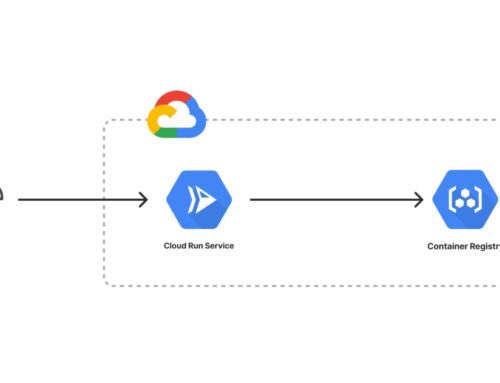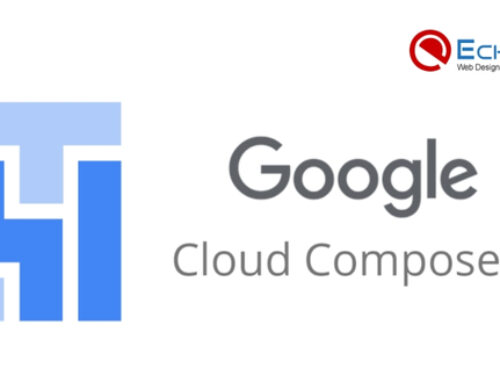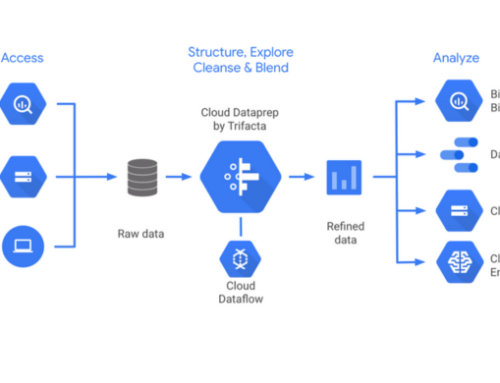24/7 User Support for Google Workspace
In today’s fast-paced digital world, organizations rely on efficient and reliable tools to streamline operations and enhance productivity. Google Workspace, formerly known as G Suite, is one such platform that has become an indispensable part of countless businesses, educational institutions, and individuals worldwide. It offers a suite of cloud-based applications, including Gmail, Google Drive, Google Docs, Google Sheets, and Google Meet, that enable collaboration, communication, and productivity. However, like any technology, Google Workspace can encounter issues or require assistance for optimal utilization. That’s where 24/7 user support for Google Workspace comes into play.
We explore the significance of 24/7 user support for Google Workspace, how it benefits users and organizations, and the challenges of providing around-the-clock assistance. We will also delve into the best practices for implementing and optimizing 24/7 user support, which can lead to increased user satisfaction and overall efficiency within the organization.
The Importance of Google Workspace
Before diving into the specifics of 24/7 user support, it’s essential to understand why Google Workspace is so crucial for organizations and individuals alike.
- Collaboration and Communication: Google Workspace offers a suite of communication tools, such as Gmail, Google Meet, and Google Chat, which enable users to communicate and collaborate effectively. These tools allow users to send emails, conduct video conferences, and have real-time chat conversations, regardless of their physical location. This is particularly valuable in today’s interconnected world, where remote work and collaboration across different time zones are common.
- Productivity and Efficiency: Google Workspace includes applications like Google Docs, Google Sheets, and Google Slides, which are cloud-based and promote productivity and efficiency. These applications allow users to create, edit, and share documents, spreadsheets, and presentations in real time. Additionally, they offer version control, which means that multiple users can work on the same document simultaneously without worrying about conflicting changes. Moreover, they can work offline and synchronize their work once they are back online, enhancing productivity.
- Cloud Storage: Google Drive is an integral part of Google Workspace, providing users with secure and accessible cloud storage. This eliminates the need for physical hardware to store files and documents. Users can access their data from any device with internet connectivity, making it convenient and flexible for both individuals and organizations.
- Security and Compliance: Google Workspace places a strong emphasis on security and compliance. It offers features like two-factor authentication, data loss prevention, and email encryption to protect user data. This is crucial, especially for businesses that deal with sensitive information and need to meet regulatory compliance requirements. Google’s robust security measures help in safeguarding data and ensuring it is not compromised.
- Scalability: Google Workspace is adaptable to the needs of businesses of all sizes. It can be customized to fit the specific requirements of an organization, making it a flexible choice for various industries. Whether you’re a small startup or a large enterprise, you can tailor Google Workspace to suit your needs, and as your organization grows, it can easily scale with you.
Google Workspace is a vital tool for organizations and individuals due to its seamless collaboration and communication features, its productivity-enhancing applications, secure cloud storage, strong security measures, and its ability to scale to the needs of different businesses. It has become an integral part of many people’s work and personal lives, offering the convenience and efficiency that modern users demand.
Why 24/7 User Support is Crucial
The importance of 24/7 user support for Google Workspace is underscored by several key factors. Google Workspace is a widely used suite of cloud-based productivity tools, including Gmail, Google Docs, Google Sheets, and more. While it offers numerous benefits, such as collaborative features and easy access to documents from anywhere, users can encounter issues or require assistance at any time. Here’s a more detailed explanation of why 24/7 user support is crucial:
- Global Reach: Google Workspace is used by organizations and individuals across the globe. This means that users in different time zones may require assistance at various hours of the day or night. Providing round-the-clock support ensures that every user, regardless of their location, can access help when they need it most. This global reach highlights the need for support that transcends time zone boundaries.
- Business Continuity: Many businesses rely on Google Workspace for their day-to-day operations, including email communication, document collaboration, and scheduling. Any interruption or downtime in these essential tools can directly impact business productivity. 24/7 user support is critical for addressing and resolving technical issues promptly, minimizing disruption to business operations. This support helps ensure business continuity by reducing the impact of any Google Workspace-related problems.
- User Satisfaction: Rapid response to user inquiries and prompt resolution of issues significantly enhance user satisfaction. When users know that they can access assistance at any time, they feel supported and valued. This positive user experience is essential for retaining satisfied customers or employees who rely on Google Workspace for their work. High user satisfaction can lead to better adoption and utilization of the platform.
- Technical Complexity: Google Workspace is a dynamic platform that continually evolves and introduces new features and capabilities. These changes may present technical challenges to users, especially if they are not familiar with the latest updates. A 24/7 support team can help users adapt to these changes, answer their questions, and guide them on how to make the most of the platform’s potential. This technical guidance is crucial for ensuring that users fully leverage the productivity tools at their disposal.
- Security and Data Protection: Google Workspace users store sensitive business information and personal data in the cloud. Timely support is essential for addressing security concerns and resolving data-related issues effectively. For instance, if a user suspects a security breach or encounters data-related problems, 24/7 support can quickly investigate and address the situation, helping to prevent potential data breaches or loss of critical information. This immediate response can be crucial in safeguarding sensitive data and maintaining data integrity.
24/7 user support for Google Workspace is vital to meet the diverse needs of users across the world, maintain business continuity, ensure high user satisfaction, assist with technical challenges, and protect the security and integrity of user data. By offering continuous support, organizations can maximize the benefits of Google Workspace and ensure that users can work efficiently and confidently with these powerful cloud-based productivity tools
The Challenges of 24/7 User Support
The concept of offering 24/7 user support for Google Workspace, or any similar service, is indeed beneficial, as it ensures users receive assistance at any time, promoting user satisfaction and productivity. However, implementing and maintaining such a service presents a series of challenges that organizations must overcome:
- Resource Allocation: To provide round-the-clock support, organizations need to allocate significant resources. This includes hiring and retaining staff, building and maintaining the necessary infrastructure (server capacity, communication tools, etc.), and investing in technology like ticketing systems, monitoring tools, and remote support solutions. The financial commitment can be substantial.
- Skill Set: Support agents working 24/7 must be well-versed in Google Workspace’s features and functionalities. They should also possess excellent problem-solving and communication skills to troubleshoot issues effectively and interact with users professionally. Recruiting and training individuals with the required skill set can be a complex and ongoing task, especially given the rapidly evolving nature of technology.
- Scalability: As organizations grow or experience fluctuations in user demand, the support team must be able to scale effectively. This scalability might involve hiring more support agents, expanding the technical infrastructure, or implementing self-service resources to reduce the pressure on human support agents during peak times.
- Integration: The support system should seamlessly integrate with the Google Workspace environment. This means that support agents should have easy access to user data, configurations, and system logs when assisting users. Integrating support tools with the Google Workspace environment ensures efficient issue resolution and reduces the time required to gather information or troubleshoot problems.
- Data Security: Providing support around the clock involves handling sensitive user data. To maintain the trust of users, organizations must implement rigorous security measures. This includes robust access controls, encryption, authentication protocols, and continuous monitoring to protect user data from breaches, unauthorized access, or data leaks. Data security is a critical concern, given the potential legal and reputational consequences of data breaches.
While 24/7 user support for Google Workspace and similar services offers many advantages, it necessitates a substantial commitment of resources, a highly skilled support team, adaptability to changing demands, seamless integration with the service environment, and unwavering dedication to data security. Addressing these challenges is essential to provide effective, reliable, and secure user support, ultimately benefiting both users and the organization itself.
Best Practices for Implementing and Optimizing 24/7 User Support
Best Practices for Implementing and Optimizing 24/7 User Support” provides a comprehensive guide for organizations looking to ensure efficient and effective support for Google Workspace users around the clock. Let’s delve deeper into each best practice:
- Training and Knowledge Management: This involves investing in continuous training for support agents. As Google Workspace evolves, support agents must stay updated on the latest features and potential issues. Building a robust knowledge base helps support agents quickly access solutions to common problems, improving response times and problem resolution.
- Use of Support Software: Implementing advanced support software that integrates seamlessly with Google Workspace is essential. This software should grant support agents quick access to user information, configurations, and logs. Having this information at their fingertips expedites issue resolution and enhances the user experience.
- Automation: Leveraging automation tools for routine tasks like password resets or providing basic troubleshooting instructions is a must. Automation significantly reduces response times, minimizes human error, and allows support agents to focus on more complex issues.
- Multichannel Support: Users have diverse preferences for communication. Offering support through various channels such as live chat, email, phone, and ticketing systems ensures that users can reach out in the way they are most comfortable with. This enhances accessibility and customer satisfaction.
- Security Protocols: Protecting user data is paramount. Strict security protocols should be in place, limiting access to user information and monitoring it closely. Background checks for support agents can help maintain the integrity and confidentiality of user data.
- Monitoring and Metrics: Implementing systems for monitoring support team performance is crucial. Collecting user feedback and utilizing metrics to assess response times, resolution rates, and user satisfaction allows continuous improvement of the support service. This feedback-driven approach helps in fine-tuning the support process.
- Scalability Planning: As organizations grow, so do the demands on their support teams. Ensuring that the support team can scale accordingly is vital. This might involve hiring additional support agents, extending support hours, or other strategies to accommodate the increasing user base.
- Collaborate with Google: Exploring partnership opportunities with Google or authorized Google Workspace resellers can be invaluable. These partnerships provide access to Google’s support resources and expertise, enabling the resolution of complex issues more efficiently. This collaboration can also lead to early access to product updates and insights into best practices.
These best practices lay the foundation for a robust and responsive 24/7 user support system for Google Workspace. By following these guidelines, organizations can ensure that their users receive the best possible support and that support teams operate efficiently and effectively.
Implementing 24/7 User Support for Google Workspace
Implementing 24/7 user support for Google Workspace is a crucial undertaking for organizations that rely on this platform for their daily operations. To ensure a seamless support experience, the process can be divided into several key steps:
- Assessment: The initial step involves a thorough evaluation of the current support needs of your organization. This includes understanding user skill levels, identifying common issues or challenges faced by users, and pinpointing peak usage times when support might be in high demand. This assessment provides valuable insights into the scope and nature of support required.
- Selecting the Right Provider: Depending on your organization’s size and resources, you can choose to partner with a third-party support provider specializing in Google Workspace, or you can establish an in-house support team. The key is to ensure that the team or provider possesses the necessary expertise and knowledge to effectively assist users with their Google Workspace-related queries and issues.
- Training: Once you have your support team in place, it’s essential to invest in their training. Training programs should cover the various aspects of Google Workspace, including its applications, features, and common troubleshooting procedures. This training ensures that support agents can handle user inquiries and issues effectively. It’s also crucial to provide regular training updates to keep the team current with platform changes and updates.
- Documentation: Develop a comprehensive knowledge base and documentation repository. This resource serves as a reference for both your support team and end-users. Users can access it for self-help purposes, while your support team can use it as a reference when providing assistance. This documentation should be well-organized, up-to-date, and easily searchable.
- Communication Channels: To offer 24/7 user support, you need to establish multiple channels of communication. This typically includes phone, email, chat, and self-service portals. Each channel should be equipped to handle user queries and issues, providing a variety of options to ensure users can easily reach out for support through their preferred means. Providing self-service options can empower users to find solutions independently, reducing the volume of support requests.
- Monitoring and Improvement: Continuously monitor the performance of your support system. This involves tracking metrics such as response times, issue resolution rates, and user satisfaction. Collect user feedback to gain insights into their experiences. Use this information to identify areas that need improvement and make necessary adjustments to enhance the support system’s effectiveness.
- Scalability: Ensure that your support system is designed to scale with your organization as it grows. As your user base or Google Workspace usage increases, the demand for support may also rise. Be prepared to expand your support team, resources, and infrastructure accordingly to meet the evolving needs of your organization.
Implementing 24/7 user support for Google Workspace is an ongoing process that requires constant attention to user needs, platform updates, and support system performance. By following these key steps, organizations can provide reliable and efficient support to their users, ensuring they can maximize their productivity and satisfaction with Google Workspace.
User Benefits of 24/7 Support
24/7 support services for Google Workspace offer several valuable benefits to users, ensuring a smooth and productive experience. Here’s a more detailed description of these user benefits:
- Immediate Issue Resolution: One of the most significant advantages of 24/7 support is the ability to resolve issues promptly. Users no longer have to wait for business hours to get help; they can reach out to support at any time. This rapid issue resolution ensures minimal disruption to their work. Whether it’s a critical problem or a minor hiccup, they can receive assistance right when they need it.
- Increased Productivity: With 24/7 support, users can quickly overcome obstacles and technical challenges. This timely assistance allows them to continue working without being hindered by technical issues. This leads to increased productivity as work progresses without unnecessary interruptions, ultimately saving time and resources.
- Enhanced Learning: Support agents are not just there to fix problems; they can also provide guidance and training. Users can take advantage of this to learn more about the full potential of Google Workspace. Whether it’s mastering advanced features, improving collaboration, or optimizing their workflows, users can tap into the expertise of support agents to enhance their skills and make the most of the platform.
- Security and Data Protection: Security is a top concern for many users, especially when it comes to handling sensitive business data. 24/7 support ensures that users have a reliable resource to address security concerns. Support agents can provide guidance on security best practices and respond swiftly to any security incidents or concerns. Users can feel confident that their data is secure and that there is always someone ready to assist in safeguarding it.
- Peace of Mind: Perhaps one of the most important benefits is the peace of mind that 24/7 support offers. Users can go about their tasks with the confidence that assistance is readily available should they encounter any technical issues. This peace of mind eliminates the stress and frustration that can arise from unexpected problems, allowing users to focus on their work without worrying about the technology behind it.
24/7 support for Google Workspace ensures users have immediate access to assistance, promotes productivity by minimizing disruptions, offers opportunities for skill development, reinforces data security, and provides peace of mind. These benefits collectively contribute to a more efficient and enjoyable user experience with Google Workspace, making it an attractive choice for businesses and professionals.
Conclusion
Google Workspace has become an integral part of countless organizations and individuals’ daily lives. To ensure a seamless user experience and maximize the platform’s potential, 24/7 user support is not a luxury but a necessity. It addresses issues promptly, enhances user satisfaction, and contributes to overall productivity and efficiency.
While establishing and maintaining 24/7 user support presents challenges, organizations can overcome them by adopting best practices, investing in training and technology, and ensuring data security. In return, users benefit from immediate issue resolution, increased productivity, and peace of mind, making 24/7 user support an essential component of the Google Workspace experience.
In an increasingly connected world, reliable and readily available support is key to unlocking the full potential of Google Workspace and ensuring that organizations and individuals can thrive in the digital age.
Support can often guide data recovery, but Google Workspace users are encouraged to implement their own backup and recovery strategies.










